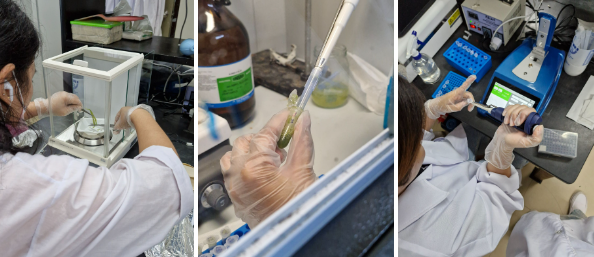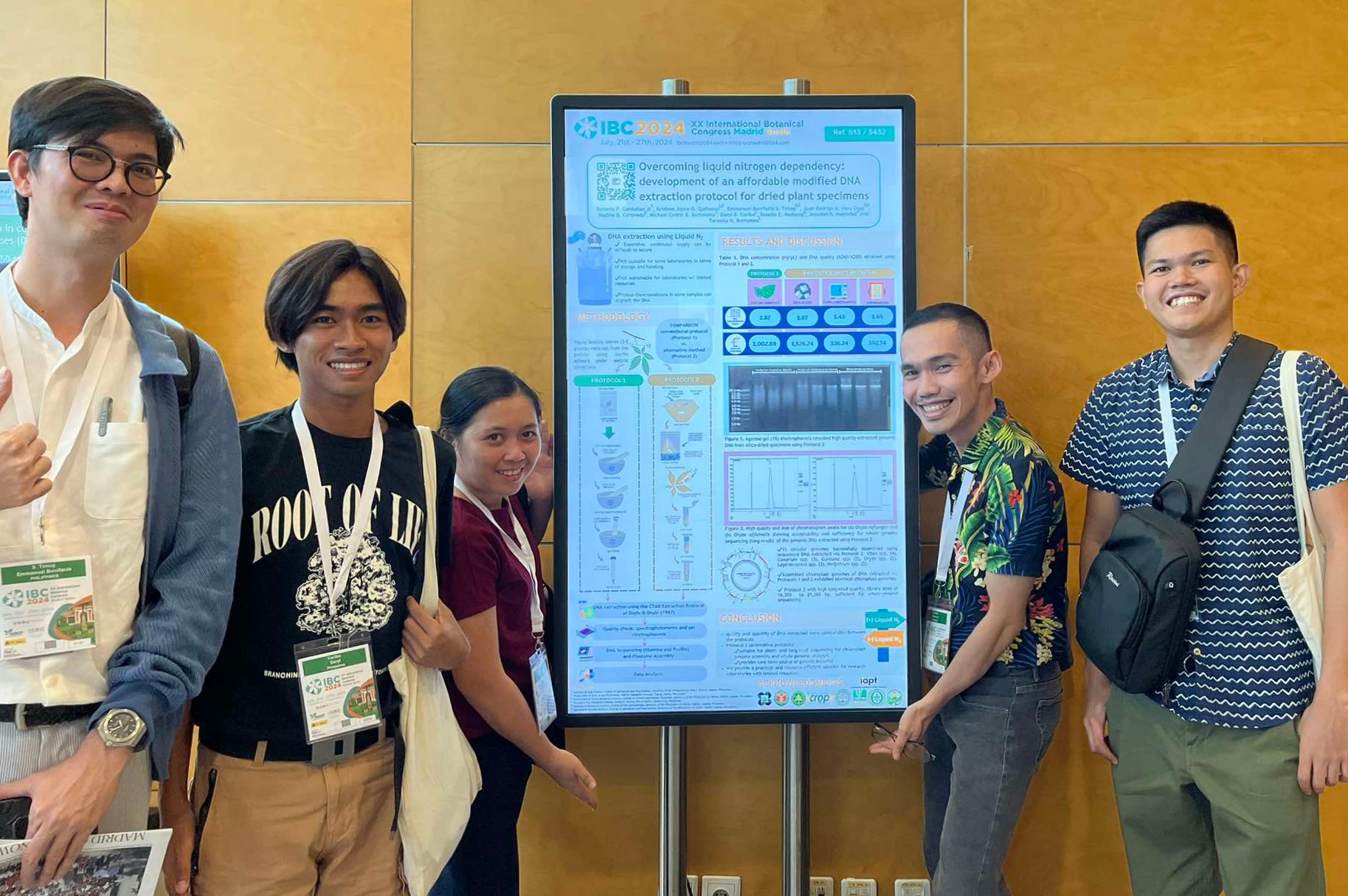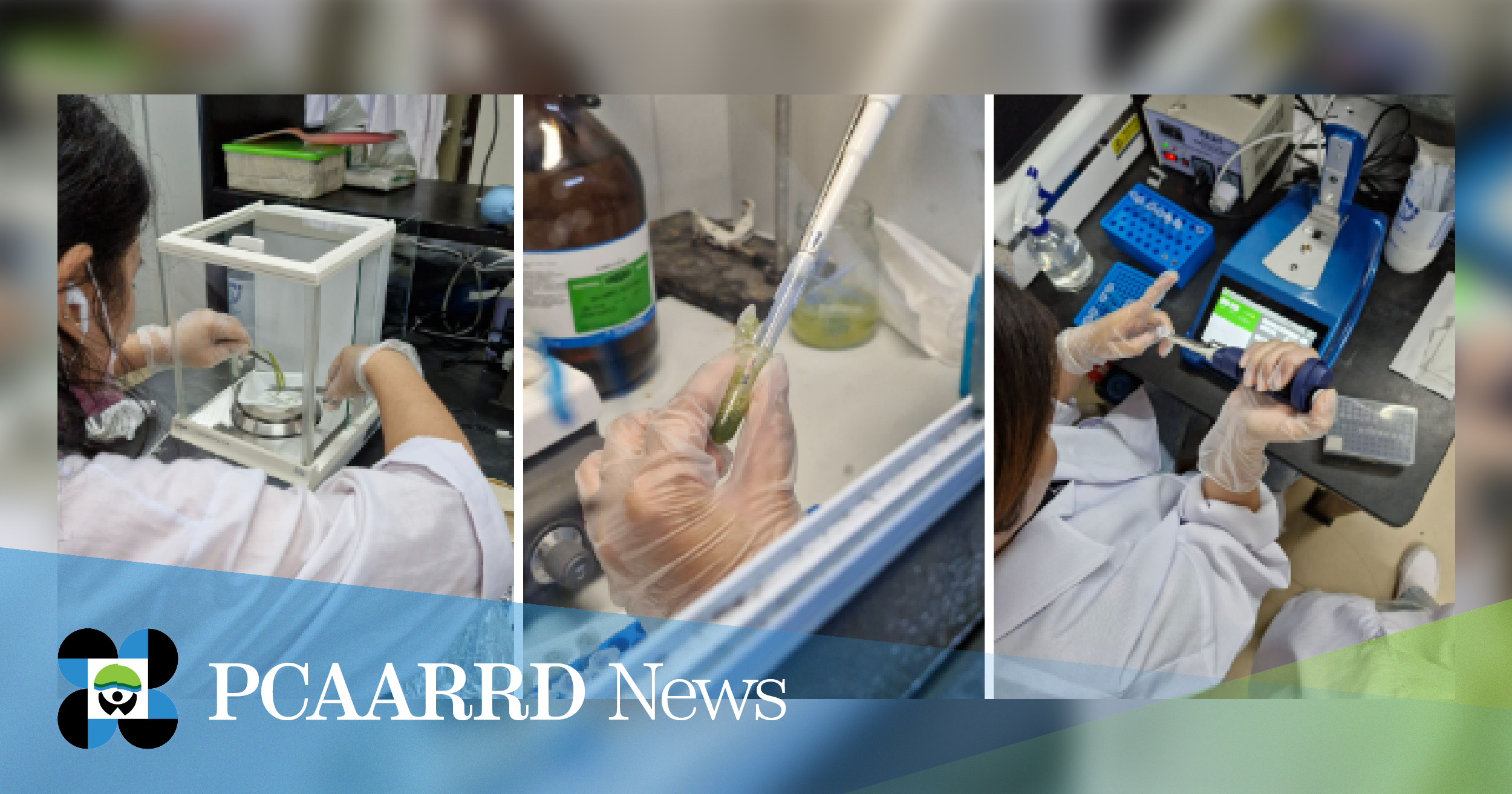A low-cost, liquid-nitrogen-free DNA extraction method was recently developed by researchers from the University of the Philippines Los Baños (UPLB) through a project funded by the Philippine Council for Agriculture, Aquatic and Natural Resources Research and Development of the Department of Science and Technology (DOST-PCAARRD).
This innovation emerged from the research activities of the project, “Development, Genotyping, and Preliminary Evaluation of Genetically Stable Planting Materials of the Philippine Priority Medicinal Plants” led by Dr. Renerio P. Gentallan Jr. of the Institute of Crop Science (ICropS), College of Agriculture and Food Science (CAFS), UPLB.

A project staff extracting DNA from silica-dried leaf samples using the low-cost, liquid-nitrogen-free DNA extraction method. (Image credit: ICropS, CAFS-UPLB)
The said project aimed to develop, characterize, and evaluate genetically stable planting materials of selected medicinal plants in the Philippines, specifically ‘lagundi,’ ‘luyang dilaw,’ ‘niyog-niyogan,’ ‘pansit-pansitan,’ ‘roselle,’ ‘sambong,’ ‘serpentina,’ ‘akapulko,’ and ‘tsaang gubat.’
Facing difficulties in sourcing liquid nitrogen for molecular characterization, the project team, along with their collaborators from the Mindanao State University (MSU)-Naawan Campus, Philippine Rice Research Institute (PhilRice), and UPLB-National Institute of Molecular Biology and Biotechnology (BIOTECH), developed a new protocol as a solution.
Intended for next-generation sequencing, the protocol eliminates the need for liquid nitrogen, which is used to rapidly freeze the tissues, promoting efficient isolation of high-quality DNA. It offers a cost-effective and practical alternative for researchers involved in field sample collection, addressing the challenges faced by remote and resource-limited laboratories due to the high cost and unavailability of liquid nitrogen.

From left to right: UPLB project team members, Mr. Emmanuel Bonifacio S. Timog, Mr. Daryl B. Ceribo, Ms. Kristine Joyce Quiñones, Dr. Renerio P. Gentallan Jr., and Mr. Michael Cedric B. Bartolome, during the International Botanical Congress held in Madrid, Spain. (Image credit: ICropS, CAFS-UPLB).
According to Dr. Gentallan and Research Fellow Kristine Joyce O. Quiñones, the project team evaluated two methods to test the effectiveness of grinding dried plant samples using the standard protocol and the modified protocol without liquid nitrogen. Results showed that both protocols yielded comparable DNA quality, suitable for short- and long-read sequencing techniques.
This breakthrough shows promise toward enhancing the efficiency of research workflows and providing accessibility to more researchers focused on plant genetic resources in the Philippines.
While the method is also proven effective for extracting DNA from mollusks and actinobacteria, the researchers suggest further optimization of the protocol for other specific organisms to expand its application.
The project team's findings were recently presented at the International Botanical Congress held in Madrid, Spain. They are also published in an open-access scientific journal, available at https://doi.org/10.1016/j.mex.2024.102758.

